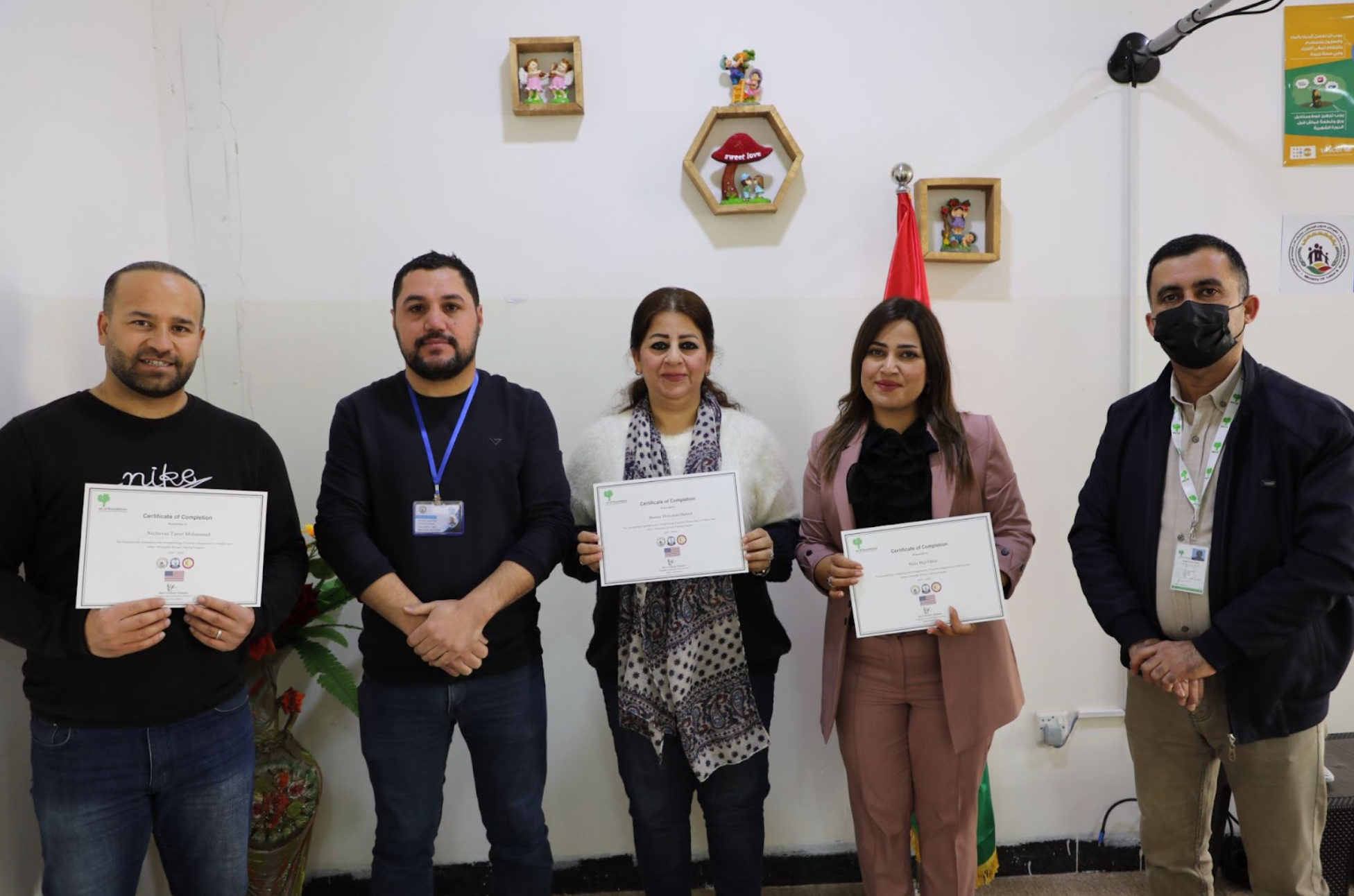
Graduates Committed to Taking A Rights Centered Approach to Child Protection
In 2021, SEED launched Strengthening Protection Responses to Children & Other Vulnerable Groups, a new child protection-focused training program designed to build the capacity of frontline service providers in Kurdistan and strengthen institutional responses to children in need. Nine months later, 41 personnel from the Kurdistan Regional Government, who together represent 23 separate offices from the Directorate of Health (DOH), the Directorate of Labor and Social Affairs (DOLSA), and the Directorate of Combating Violence Against Women and Families (DCVAW) in Duhok, successfully graduated from the program.
SEED’s Strengthening Protection Responses to Children & Other Vulnerable Groups training program was intensive, composed of three weeks of classroom instruction, each interspersed with four to six weeks of on-the-job coaching to reinforce applied knowledge. It was delivered to two cohorts, each with a diverse range of frontline responders and service providers, including psychologists, police officers, social workers, and teachers. Over the course of the training, trainees completed nearly 210 hours of instruction, covering 16 specialized modules designed to deepen their understanding of child protection issues and interventions. Through approximately 250 individual coaching sessions, SEED supported trainees with hands-on capacity building to help them apply new knowledge and technical skills to their important work. Our trainees also practiced valuable self-care activities, dedicating 100 hours over the course of the program to learning and applying new techniques to sustain wellbeing and nurture resilience.
“I learned about my emotional responses to stress, and developed coping skills to manage them.” Legal Assistant, DOLSA
Our trainees entered this program with high hopes of expanding their child protection expertise and learning new strategies and practices to apply in their respective professions. Across both cohorts, participants deepened their understanding on a wide range of subjects, and pushed themselves to engage thoughtfully with complex issues. Many trainees expressed enthusiasm about being challenged to think critically about social constructs, customs, and concepts that can affect the integration and inclusion of vulnerable groups within communities.
“The presence of specialized trainers had a significant impact on the increased interaction of participants and in building a coherent, participatory environment during all training sessions.” Psychologist, DOH
From the beginning, trainees were able to observe the positive impact of the program on their approach to work. Participants from all three institutions commented on the importance of the child protection case management module, its direct relevance and applicability to their work, and how it helped them to manage cases and navigate client referral processes. Other key areas of improvement over the course of the training program included communication skills, suicide prevention, crisis intervention, and understanding and responding to gender-based violence. A participant from DCVAW explained that the program “increased his skills in communicating with clients, building a safe environment, building trust, empathy, and active listening.”
“The training helped me to develop my skills in focusing more on the psychological aspect of client cases. It increased my ability to respond to children and solve problems without causing further harm to the client.” Major, DCVAW
Reflecting on SEED’s Strengthening Protection Responses to Children & Other Vulnerable Groups training program, trainees expressed appreciation for having been offered the opportunity to participate in a training that is directly applicable to their daily work. This was not only SEED’s first child protection-focused training program, but was also, for many participants, their first opportunity to receive formal training in child protection principles. Several participants also observed that navigating the training program in diversified cohorts, in the company of fellow service providers from DOLSA, DCVAW, and DOH, brought with it the added value of increasing collaboration between government institutions and strengthening referral pathways. In the words of a DOH trainee, “SEED’s idea to gather the three directorates was the best step in increasing coordination and sharing information and experiences, as this course allowed us to identify the map of services for each institution.”
At SEED, we are extremely proud of our trainees’ accomplishments, their dedication to their own professional development, and their determination to build a brighter future for the Kurdistan Region’s most vulnerable children. It was an honor to partner with our trainees on their learning journey, and we are excited to watch them build on this significant achievement and leverage what they’ve learned to become agents of change in their work, their institutions, and their communities.
